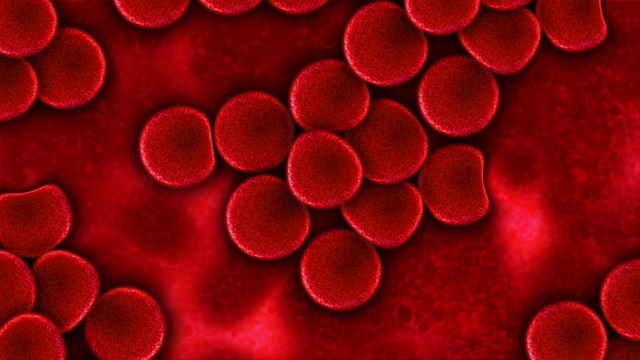
Scientists at the Johns Hopkins Kimmel Cancer Center and University of Melbourne report they have used a genetic test that spots bits of cancer-related DNA circulating in the blood to accurately predict the likelihood of the disease’s return in some — but not all — of a small group of patients with early-stage colon cancer.
The DNA-based test, described in the July 6 issue of Science Translational Medicine, if confirmed by further research, could eventually help clinicians decide which patients need additional treatment at the time of their initial cancer diagnosis of stage 2 cancer, say the researchers. Stage 2 tumors, in general, have invaded nearby tissues but not spread to other organs, and uncertainty has long surrounded the question of whether chemotherapy prescribed after surgical treatment is beneficial.
“Most patients with stage 2 colon cancers will be cured of the disease after surgery alone,” says Bert Vogelstein, M.D., co-director of the Ludwig Center at the Johns Hopkins Kimmel Cancer Center. “However, some of these cancers will recur, and we need to improve our diagnostic approaches to detect recurrence earlier than it can be found with current, conventional methods.” Labs worldwide are working on DNA-based tests.
For the current study, the scientists followed 230 stage 2 colon cancer patients in 13 hospitals in Australia for four years, beginning in 2011, collecting more than 1,000 blood samples from them. After scanning the genetic sequences of tissue taken from the patients’ tumors during surgery, the scientists, led by Kimmel Cancer Center graduate student Yuxuan Wang, identified at least one colon cancer-related gene mutation in the patients’ original tumor.
Over time, they tracked each patient’s cancer-related mutation in his or her blood samples, taken between four and 10 weeks after their surgery and every three months afterward for up to two years. The tracking used highly sensitive genetic tests to locate and amplify DNA found there. Patients also underwent a CT scan of their entire body every six months after surgery for two years.
Among the 230 patients, 20 had cancer-linked DNA fragments in their blood, including 14 who did not to receive additional chemotherapy and six who did. Of the 14, 11 developed a recurrence, found on a CT scan, during the study. Of the six who received additional chemotherapy, three experienced a recurrence of their cancers during the study period. An additional 14 patients experienced cancer recurrences, but their blood tests showed no cancer-linked DNA.
“Although this and other DNA-based blood tests are not perfect, this study shows that when we find tumor DNA circulating in the blood of cancer patients, recurrence is very likely,” says Nickolas Papadopoulos, Ph.D., professor of oncology at the Johns Hopkins University School of Medicine and member of its Kimmel Cancer Center.
Currently, some 40 percent of patients with stage 2 colon cancers are considered at risk for recurrence as a result of measuring how far the cancer has grown into the intestine’s wall, the number of lymph nodes examined during surgery, and whether the cancer has spread to blood or lymphatic vessels. Those deemed at higher risk are usually treated with chemotherapy following their surgery, but efforts to demonstrate the benefit of such additional therapies have been hampered by the lack of large-scale studies with the statistical power to show any benefit in terms of survival, say the researchers.
Vogelstein says better methods to predict risk for recurrence, such as the genetic-based blood test described in this study, could identify a very-high-risk subset of patients who can form the basis of rigorous study of the benefit of additional treatment. The new findings affirm how research on cancer diagnostics goes hand in hand with research on new therapies, says Vogelstein, the Clayton Professor of Oncology at Johns Hopkins and an investigator at the Howard Hughes Medical Institute.
“There is mounting evidence that ctDNA is a viable approach for earlier detection of cancer recurrence, and more research is underway to refine the technology, improve its sensitivity and determine the best testing intervals,” says Kenneth Kinzler, Ph.D., co-director of the Ludwig Center at the Johns Hopkins Kimmel Cancer Center.
There are currently no DNA-based blood tests for cancer approved by the U.S. Food and Drug Administration, although several biotechnology companies are designing and studying them as the result of prior research conducted at Johns Hopkins. Costs of the tests are estimated to range in the many hundreds to thousands of dollars, and it is unclear whether health insurance companies would reimburse costs related to the testing.
###
Kinzler, Papadopoulos, Luis Diaz, and Vogelstein are founders of PapGene Inc. and Personal Genome Diagnostics Inc., and members of the scientific advisory boards of Morphotek and Sysmex-Inostics. These companies and others have licensed patent applications on genetic technologies from Johns Hopkins, some of which result in royalty payments to Kinzler, Papadopoulos, Diaz, Vogelstein and Isaac Kinde. The terms of these arrangements are being managed by The Johns Hopkins University in accordance with its conflict of interest policies.
Other scientists who collaborated on the research include Jeanne Tie, Mark Tacey, Hui-Li Wong, Michael Christie, Suzanne Kosmider, Iain Skinner, Ben Tran, Jayesh Desai, Ian Jones and Peter Gibbs from the Walter and Eliza Hall Institute of Medical Research and the University of Melbourne; Rachel Wong from Monash University; Malcolm Steel from Eastern Health; Andrew Haydon from Alfred Hospital; Theresa Hayes from Warrnambool Hospital; Tim Price from the University of Adelaide; Robert Strausberg from Ludwig Cancer Research; Isaac Kinde from PapGene Inc.; and Cristian Tomasetti, Lu Li, Simeon Springer, Natalie Silliman, and Luis Diaz Jr. from Johns Hopkins.
This study was funded by Ludwig Cancer Research, the Conrad N. Hilton Foundation, the Sol Goldman Sequencing Facility at Johns Hopkins, the National Institutes of Health’s National Cancer Institute (CA43460, CA152753, CA006973) and the Victorian Cancer Agency.
Media Contact
Amy Mone
[email protected]
410-614-2915
@HopkinsMedicine
http://www.hopkinsmedicine.org
The post Blood test to detect DNA fragments shed from colon cancers predicts disease’s recurrence appeared first on Scienmag.





